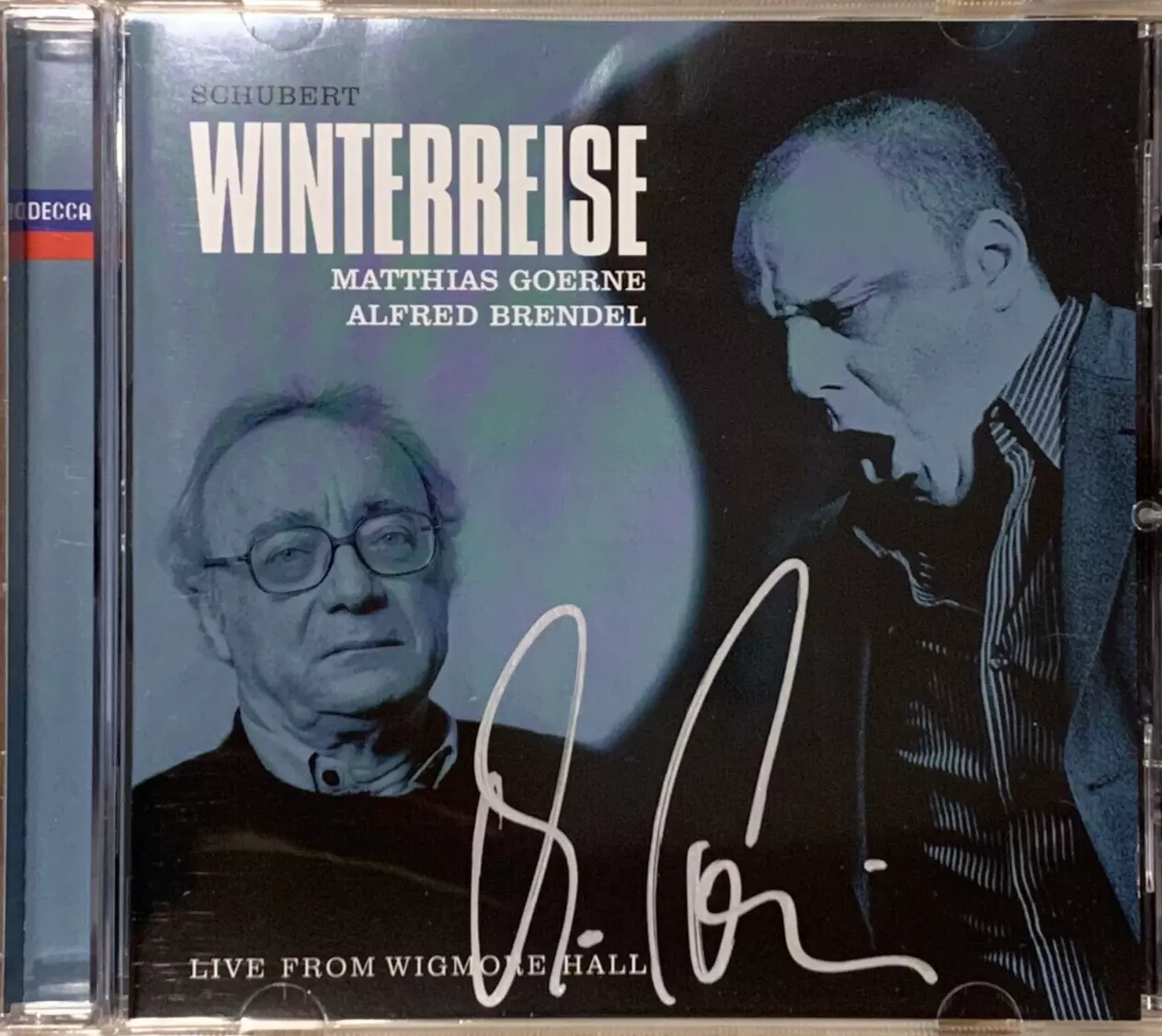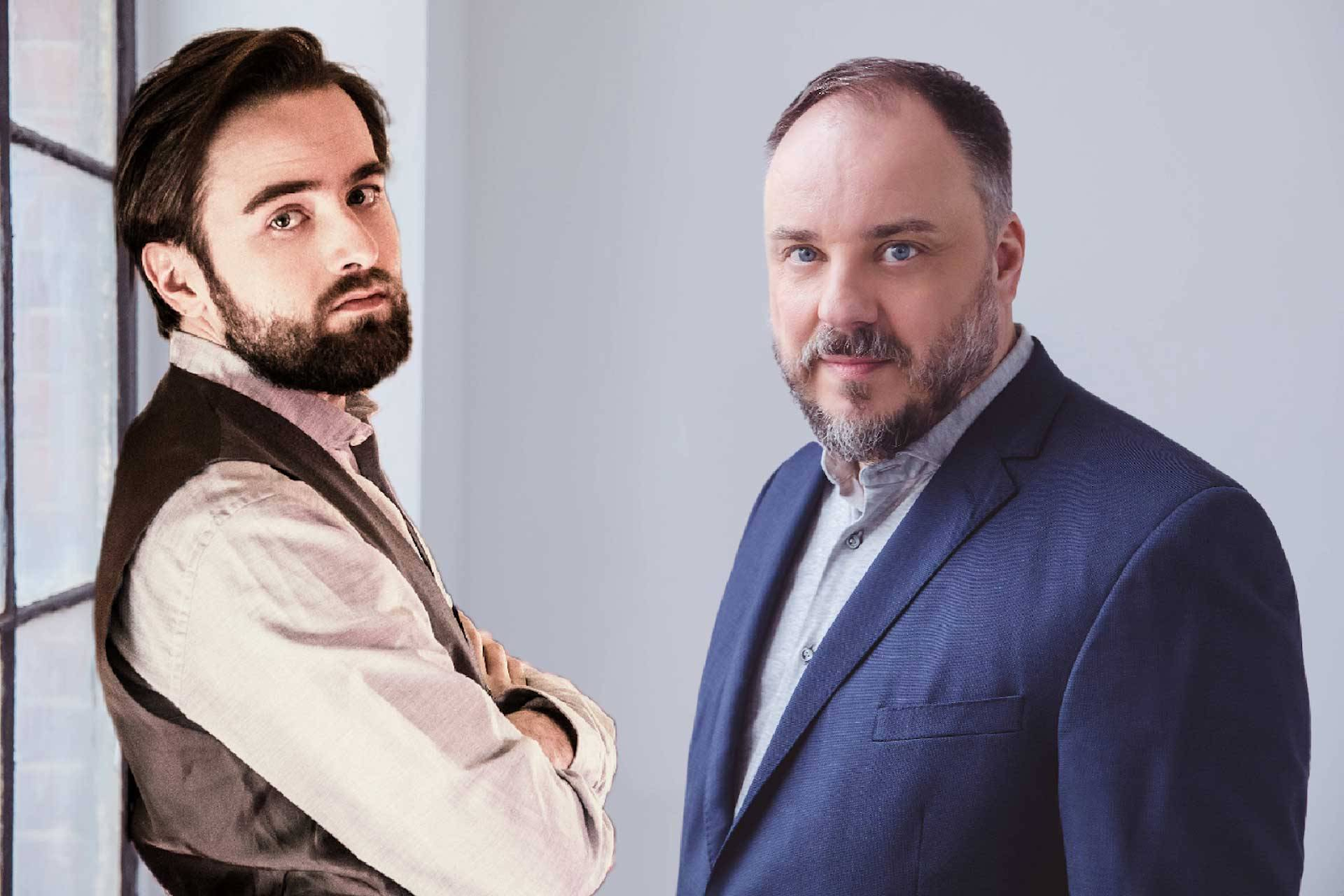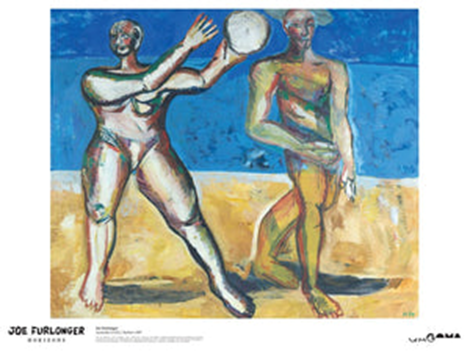ABC’s Classics Mairi Nicolson notes that Matthias Goerne has sung Winterreise hundreds of times. To quote Goerne: "I would say it's [Winterreise] the most perfect kind of story. It's about a human being confronted with all the normal things we have to face in life: that we are disappointed; that we do not understand; that we are missing love. It's not complicated to listen to or understand. Even when the words are delivered in a very poetic language, people are into it very quickly.
This piece is so timeless, so uniquely connected with humans. Even 2,000 years ago it would be the right cycle, and I'm quite sure in 2,000 years people will listen to it." He adds: "A lot of classical music will disappear — but Schubert's Winterreise will not be one of those pieces."
Due to urgent appointments, we couldn’t do Sydney. That left Melbourne. Leaving the RNM* baffled by my swift actions, I booked performance tickets, flights, and accommodation for Melbourne the following week. I was flooded with the warmest memories of my stepfather singing Wilhelm Műller’s 24 poems, which Schubert immortalised with his compositions. This meant so much to me, bringing to life memories that I thought long buried.
View from our hotel
After checking in, freshening up and changing clothes, we meandered towards the Recital Hall.
During his Australian tour, Goerne was accompanied by the Russian pianist Daniil Trifonov.
“The bottom
line: it was an evening of masterful interpretation from a singer who knows the
music intimately but whose voice is not quite what it was. He was joined by a
pianist of no doubt astonishing ability who is perhaps still more at home in
front of a symphony orchestra than alongside a singer, and who is more
naturally aligned with Rachmaninov than Schubert.
An evening
with this extraordinary music is never wasted and it was heartening to see a
near full Elisabeth Murdoch Hall for the timeless art of Lieder and the
timeless messages of Müller’s poems.”
The beach is very close; we got there by tram. I often hear that the weather in Melbourne is dreadful; well, the sun was shining for us. So much so that I absolutely fell in love with this city and wanted to relocate, an impulse halted by the RNMs rationality.
The program opened with the Open Con Guitar Ensemble under the smooth direction of Joel Woods, warming up the theatre with Rumba Flamenca, Sakura Variations and Ballade. Next, the Open Con Guitar Ensemble joined the Riverside Guitar Ensemble to play Karl Jenkins’s Palladio.
Classical pieces by Beethoven and Brahms formed part of the repertoire. Apart from the two Ensembles, the Jacaranda Guitar Quartet delighted with a performance of Brahms’s Hungarian Dance No. 5 and contemporary Duncan Gardiner’s In Paradiso Midar compositions. Karin Schaupp teamed up with her childhood mentor Janet Agostino rendering a treat of virtuosity.
 |
| Karin Schaupp and the Ensembles |
After the interval, an arrangement of Flamenco, Deep Purple and hot classical guitar medley concluded this most enjoyable evening. A note to self – watch out for next year’s Extravaganza.
A few weeks ago we went to the QSO to hear Tchaikovsky and Beethoven under the programmed direction of Alondra de la Parra. We were informed just before the opening Sinfonia that the conductor had taken ill one hour ago, she was on the way to the hospital as the announcement was made. I think the whole audience took one deep breath.
 |
| Nemanja Radulovic |
To the credit of all performers and organisers, a replacement conductor Dane Lam, who was in town to direct Opera Queensland's Orpheus and Eurydice, was found. This necessitated a change in the programme and instead of Ibarra Groth's Sinfonia No. 2, we heard the overture to Gluck's opera, which Dane was performing with the QSO for Opera Qld.
Violinist Nemanja Radulovic, I can only describe this as catapulted, onto the stage for the second piece. Apart from his somewhat unusual attire, white jacket over black tights and white tutu-like skirt, he gave a spellbinding rendition of Tchaikovsky's Concerto in D for Violin and Orchestra. Nemanja was the soloist as well as the conductor of the QSO. He played, he conducted, he faced the audience, he faced the orchestra, his solo violin developed passionately from its original theme into 'rhapsodic excitement' (Programme notes). What a treat, in all our concert attendances we have never seen or heard anything as mesmerising as this. And while we hope that Alondra had a good recovery, we are happy not to have missed this electrifying performance.
After interval we settled back into listening to Beethoven's Symphony No. 6 in F, Pastorale. And as the title suggests we meandered through a pastoral setting incorporating an awakening of nature, a merry rural mood, a summer's thunderstorm and the rejoice after it. A fitting ending to a wonderful concert performance.
The Queensland Choir at Twelfth Night Theatre - A Tribute to Marjorie Johnstone
On Sunday, 15 September, I went with my friend Sue to the Twelfth Night Theatre. The Queensland Choir, under the baton of Kevin Power and founded in 1872, ably performed excerpts from classical composers like Mozart, Bach, Brahms, Strauss, Rossini, Vivaldi and Verdi during the first Act. In the second Act songs from popular musicals like Cats, Jesus Christ Superstar, Evita, Starlight Express and Phantom of the Opera roused the full house out of their seats.
This event was staged as a fitting tribute to Marjorie Johnstone, who ran The Johnstone Gallery with her husband Brian between 1952 and 1972. They exhibited the works of great artists like Margaret Olley, Grace Cossington Smith, Sidney Nolan, Charles Blackman, Arthur Boyd, Ray Crooke, Lawrence Daws and many more.
The Johnstone's involvement with theatre resulted in the building of the present day Twelfth Night Theatre complex. When its doors opened in 1971 the Theatre Club hit the news with its '12 to 12 licence' under which, for the first time, women were - can you believe it? - able to order and pay for a drink 'and still feel feminine' (The Johnstone Gallery Archive: Scrapbook 1970: RBHARC 7/1/13, p.148). This trailblazing act was taken up by the current theatre owner, Gail Wiltshire, who in 1977 faced the enormous challenge of restoring a theatre that had fallen into disrepair. Apart from their passion of loving the theatre, Gail and Marjorie became great friends. In a moving theatrical tribute Gail, with panache, allowed the audience to share her deep affection for Marjorie.
Photographer unknown
Brian and Marjorie Johnstone with Lindy, c.1960
RBHARC 7/1/4 13143, p.38, The Johnstone Gallery Archive,
Australian Library of Art, State Library of Queensland
https://art-museum.uq.edu.au/whats/past-exhibitions/2014/remembering-brian-and-marjorie-johnstones-galleries
Shikara Ringdahl gave a spine tingling performance of Don't cry for me Argentina. Standing on the backstage staircase enhanced the dramatic effect. Greg Moore and Jason Barry-Smith sang with their usual polished professionalism. The audience loved it and seemed to leave on a higher note!
Sue enjoyed this Phantom of the Opera presentation more than one she had attended a little while ago. What a wonderful way to spend a Sunday afternoon.
Masterclass with Paul Lewis at The University of Queensland's School of Music
 On Tuesday, 10 September, Geoff and I attended this remarkable event. To music lovers the internationally acclaimed pianist Paul Lewis needs no introduction; he is renowned for his cycles of core piano works by Beethoven and Schubert and is the recipient of numerous worldwide awards. And, if your read my Travel snippet about Schwarzenberg 06/2017 and my infatuation with Alfred Brendel, Paul studied privately with Alfred Brendel. Yes, I am a tad excited. So there we were, being included in Paul giving a Masterclass.
On Tuesday, 10 September, Geoff and I attended this remarkable event. To music lovers the internationally acclaimed pianist Paul Lewis needs no introduction; he is renowned for his cycles of core piano works by Beethoven and Schubert and is the recipient of numerous worldwide awards. And, if your read my Travel snippet about Schwarzenberg 06/2017 and my infatuation with Alfred Brendel, Paul studied privately with Alfred Brendel. Yes, I am a tad excited. So there we were, being included in Paul giving a Masterclass. Each student (female and male), performed their chosen piece by Chopin and Schumann respectively. Whether is was Paul demonstrating how loosening up the wrist perfects the performance or other suggestions on how to improve the students' musical rendition, he generously gave wisdom and feedback. It was a wonderful experience for students and audience alike.
When asked by an audience member which of Paul's advice the students would prioritise, he humbly replied 'none', but that they would reflect about their own performance. After the event we were treated to drinks and nibbles. Since we had tickets for Paul playing on Thursday, we were truly primed for that concert:
Romance and Revolution, Paul Lewis plays Beethoven with the Queensland Symphony Orchestra at the Concert Hall, QPAC
On 12 September, Paul played Beethoven's Concerto No. 3 in C minor for Piano and Orchestra, Op. 37. Robert Gibson writes in the Programme Notes that: 'The solo piano is a crucial player in the drama, creating much of the momentum through brilliant passages (forceful scales, decisive octaves, dazzling ornamentation) but also by pulling back and lowering the temperature as required.' What else can I add? It was simply fabulous. And, Mr Brendel, I blame your influence on acquiring a new hero of musicianship.
The Great Symphony - Simone Young Returns at QPAC

Saturday, 20 July Geoff and I went to a QSO concert. Under the Baton of Simone Young the programme featured the Australian premiere of Brett Dean's Notturno inquieto, Béla Bartók's Viola Concerto, and Franz Schubert's Symphony No. 9 in C Major. The first two pieces focus on the viola section, in fact, German-based Nils
Mőnkemeyer was the soloist for the Bartók piece.
We listened to the pre-concert talk, which is always very informative and provides valuable insights. For example, Dean is the only composer to have witnessed the performance of his own composition; Bartók and Schubert died before the premiere of their works. The speaker also pointed out that the programme encompassed the works of a 19th, 20th, and 21st century composer. This comparison raised our curiosity.
The concert was well attended. Before the concert hall doors open, I always enjoy sitting into foyer perusing the, at times, lavish outfits of concert goers. These attires can be, not totally Viennese 19th century ball gowns, but imaginatively close to it. I dressed modestly in black. Once seated inside the concert hall, it is interesting to see the musicians file on to the stage as they prepare for their performance. There were quite a few children scattered amongst the audience. I admire parents who introduce their children to classical music at an early age by bringing them along.
Brett’s work contained sounds that seemed quite unusual and I envisaged the first hesitant emergence of nocturnal animals that eventually formed into an army sweeping the landscape. In between I thought I detected a faint didgeridoo sound, but I need to hear it again to be certain. It was great to witness the Australian premiere here in Brisbane.
Mőnkemeyer mastered the rhythmic challenges of Bartók's viola concerto with ease and virtuosity. I look forward to seeing and hearing more of this young violist.
After the interval we listened to the four movements of Schubert's powerful and dramatic Great C Major Symphony. The work's themes convey to me tragedy and yet a triumphant optimism that leaves me with lingering pondering about what life is all about.
It was such a treat to see Simone Young conducting. She delivers with dynamism and yet ultra-sensitivity, swaying like a graceful dancer, bending her knees, silently stamping her feet for emphasis, leading the orchestra into tune and rhythm. She is fantastic, no wonder she was, apart from having received many awards, voted Conductor of the Year (2006) by Opernwelt. The Queensland Symphony Orchestra responded to her direction and gave a wonderful rendition on the night.















.HEIC)











